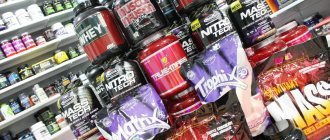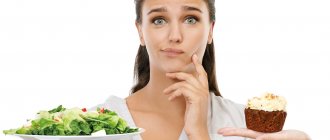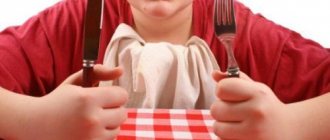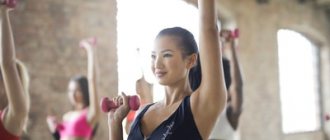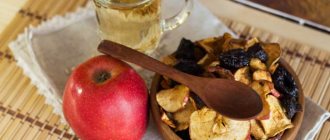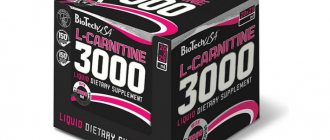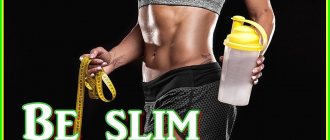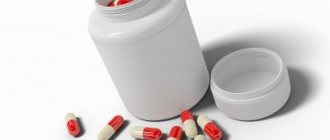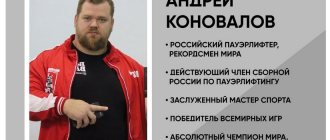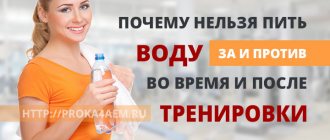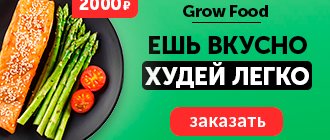Renat Shagabutdinov, a participant in international marathons, the Comrades ultramarathon, and the Ironman triathlon, tells what an amateur athlete should eat.
In this article we will discuss:
- What is sports nutrition - and is it necessary to use it?
- What the body needs before, during and after training
- What sports nutrition is intended for what purposes?
We'll talk about the basics. For those who want to delve deeper into this interesting and vast topic, read the literature from the list at the end of the article.
What is sports nutrition
Sports nutrition is not doping or “harmful chemicals”, and not something needed only by pros, and not a superfood that can improve results. It's simply a more convenient (and expensive) nutritional format designed with athletes in mind. If you're just starting out as an amateur and run three to four times a week for 40 minutes, or occasionally ride a bike, or go to the pool 3-4 times a week, you probably don't need sports nutrition.
If you have already started participating in amateur competitions or are actively gaining muscle mass, you have long training sessions - sports nutrition can help. If you train a lot (relatively speaking, 10 hours of running a week or 15 hours of training of various types in triathlon) - sports nutrition can be very relevant. Although you can safely do without it by eating rationally, replenishing the water-salt balance and taking vitamins and minerals.
Renat at the Comrades ultramarathon. Photo from Renata's blog
Remember that before using sports nutrition or vitamin-mineral complexes, as well as any other supplements, you should consult with a sports doctor.
The most basic products in sports nutrition:
- Carbohydrate gels are a convenient format for obtaining energy during long workouts and competitions.
- Sports drinks allow you to replenish salts that are lost through sweat; sometimes they also contain carbohydrates, that is, they are also a source of energy.
- Protein mixtures, gainers, recovery mixtures - allow you to restore muscle tissue and (this applies to the last two categories) replenish energy reserves after workouts.
Before training/competition
Under no circumstances should you approach training in a state of dehydration. Drink approximately 400-500 ml of liquid before bed if you train in the morning, and 400-700 ml of liquid in the morning. An hour before training, you should drink 500-700 ml of liquid - and at this time it may not be water, but a sports drink (with minerals, primarily sodium and potassium).
- 3-4 hours before training, you can safely eat up to 4 grams of carbohydrates per kilogram of body weight
- 2 hours before training - up to 2 grams of carbohydrates per kilogram of body weight.
- An hour before training - up to 1 gram of carbohydrates per kilogram of body weight.
Where do you get these carbohydrates from? If you don’t have much time left, you can take a sports drink with carbohydrates or a carbohydrate gel. If 2-3 hours before training or competition - with regular food, rich in carbohydrates, without fat and without protein, and preferably without the products mentioned below. But there are individual characteristics: if you always run after some non-standard food and it is digested normally, if you always drink coffee before training - why not?
Source.
To avoid digestive problems during training or competition, avoid these foods the night before and before:
- Fruits and berries. Most fruits are rich in fiber, and berries have even more in percentage terms.
- Vegetables. It's an essential part of a healthy diet, but it's best to be careful before competition.
- Red meat. It's best to save steak for dinner after the marathon. Red meat, rich in fat and protein, takes a long time to digest.
- Legumes. They take a long time to digest.
- Dried fruits. They're a great source of carbohydrates, but they're also high in fiber, just like fresh fruit.
- Coffee. Output quickly. increases acidity in the stomach: it is better not to take risks on the morning of the competition. However, if you have tried drinking coffee many times before workouts of varying duration and intensity and everything was fine, and you can’t wake up without it, then you can drink a cup at breakfast before the competition.
During training/competition
Energy
How many carbohydrates should you consume depending on the duration of your workout?
Less than 45 minutes: no carbs needed (interestingly, some studies show that simply rinsing your mouth with a carbohydrate drink has the same effect during short workouts as consuming carbohydrates by mouth).
45-75 minutes: up to 30 grams per hour - any types of carbohydrates.
2-3 hours: up to 60 grams per hour, carbohydrates should include glucose or maltodextrin.
More than 3 hours: up to 90 grams per hour, a combination of different carbohydrates (for example, glucose, maltdextrin and fructore).
Gels are one of the most convenient foods to fuel during long training sessions and races.
Important note: The gel, like sports bars, is simply a convenient way to deliver sugar to the body. And, as a rule, more expensive compared to “regular” food. About how much more expensive sports food is, for example, there is brilliant material (with quantitative calculations) in Nancy Clark's Sports Nutrition Guidebook. That is, there is nothing magical in the gels - just like in the invigorating effect of Red Bull, Mountain Dew or Coca-Cola, behind which there is mainly a large amount of sugar, and only secondarily caffeine.
Photo Renata
In general, what should you pay attention to when choosing a gel?
- On calorie content (how much energy is enough) and types of sugar in the composition (for example, only fructose - rapid absorption, two or three types of sugar - a more distributed supply of energy).
- The taste (you won’t have an appetite anyway - it’s better if you like this sticky rubbish at least a little).
- On the packaging format (the tube is not very convenient for running, it seems to me; not all sachets fit comfortably into a pocket or belt - and so on).
- Presence/absence of salts (You must get salt from one source or another to avoid hyponatremia).
Remember that any gels must be washed down with water, even “isotonic” ones (Iso, Hydro, etc.) should preferably be washed down immediately or after some time. Any gels should not be washed down with sports drinks containing carbohydrates - this leads to the consumption of excessive amounts of carbohydrates and, as a result, to stomach problems.
And one more thing - if you expect an effect from caffeine (which is contained in many gels), stop taking it 1-2 weeks before the competition. Be sure to test any gels during long workouts. You can read a detailed review of gels on my blog.
What alternatives are there to gels?
- Baby food.
- Kissel - ready-made or powdered, which you prepare yourself. You can add sugar, honey, amino acids - everything according to your taste and needs.
- Energy bars (hard to chew, especially if you're running fast - might be fine on a bike).
- Special sports chewing candies (not always convenient to chew, but you can dose nutrients and caffeine more accurately and eat in smaller portions) Main manufacturers - GU, Gatorade, Clif, Powerbar.
- “Normal” food (if you have access and if you can digest it on the run):
Any food that is low in fiber and has a sufficient amount of carbohydrates (select servings at the rate of 30-60 grams per hour).
These criteria include vegetable and fruit juices, canned fruits, granola, crackers, gummies, jams, white bread, bagels, pretzels, raisins, boiled potatoes and much more.
Pancakes, pancakes, pancakes (and the now popular “oatmeal pancakes”) are rich in carbohydrates, source.
Test it in training so that you can use what you learn well in competitions. And, of course, drink the required amount of water.
Questions before, during and after reading a fiction book
Some people read 10 books a year, some 50, some even more. However, we all understand one simple truth: the quality of information and the level of its understanding are important. To encourage critical reading, you need to learn to ask the right questions. This will help you to take a more conscious approach to the book and get a lot more out of it.
In our article we will talk about fiction, but if you really want, the questions can be remade and used for reading professional literature.
Why is this so important?
Reading books is an element of learning, self-development, and one of the most useful ways to spend time. You need to get the most out of every book. Deep understanding is incredibly important because characters and dialogue can be forgotten over time, but the essence remains.
Dolores Durkin conducted a study in 1979 and found that the vast majority of teachers and teachers ask questions only after finishing reading a book, and very rarely before and during. Further study showed that the situation did not get much better over time.
Meanwhile, there are great advantages in such reading:
- Understanding why this book is needed at all
- Ability to make assumptions
- Learn to create connections and associations
- Use context when encountering unfamiliar words
- Evaluate text quality
- Revise key points in the text
- Understand how the information can be used in the future
Before questions
You have chosen an interesting book, made yourself comfortable and are ready to read. But first, ask a couple of questions to help you perceive the text more consciously:
- What clues does the book's title give me about the plot and story?
- What will the book be about? Why do I think this?
- Is this a real or fictional story?
- Why am I reading this?
- What do I already know about this book and its topic?
- What assumptions can I make?
Questions "during"
Take several breaks while reading. Ask yourself a few questions about the chapter you are reading:
- What did I understand from what I read?
- What is the main idea?
- What picture did the author paint in my imagination?
- Do I need to reread this chapter to understand it better?
- What will the character do? Why?
- What emotions does the character experience?
- What would I do in his place?
- Has something similar happened to me?
- Describe what you read in your own words.
- Do I need to memorize this text? Why?
Reread this chapter and ask yourself the following questions:
- Which assumptions were correct?
- What is the main idea really?
Questions "after"
- At what level of understanding of the text was I? Isn't there a deeper meaning?
- What questions did the author pose to himself and how did he answer them?
- What were the author's intentions or did he completely try to distance himself from the intentions and his point of view?
- Did the author answer all of his questions or were some answers incomplete?
- If there was a sequel, what could it be?
- Can you tell the story in your own words?
- What events were the most important?
All these questions will help you not just read the book, but get great benefit from it.
If you are a teacher
Your main responsibility as a teacher is to engage your students in conversation and find out what they think about the book.
- Why did the author place the characters in this place and time?
- Why did the author start the story this way?
- Why did the author end the story this way?
- What questions would you ask the author?
This approach can be used when studying:
- Fiction
- Science
- Mathematicians
- Writing skills
- Social Sciences
You can come up with questions yourself. The main thing is to treat the text consciously. It’s better to read fewer books, but feel them as deeply as possible.
We wish you good luck!
We also recommend reading:
- Storytelling
- Why and how to create a book for the books you read
- Rules for Effective Reading
- Self-learning model SQ3R
- Thomas Foster "The Art of Reading" How to understand books" - summary
- The best blog materials in 2021: thinking development, brain training, self-education
- How to become a good reader
- How to read non-fiction books and benefit from it
- How to understand a complex book? Analytical reading from Mortimer Adler
- How to read effectively: a selection of useful materials
- How to Improve Your Reading Experience
Key words:1Speed reading
Water-salt balance
Water and dehydration
For normal functioning of the body, you need 30-35 ml of water per kilogram of body weight per day. Accordingly, during training we lose more fluid through sweat. Dehydration (low fluid levels) is most easily identified by the color of your urine. If it is bright yellow or dark coffee-colored, most likely you need to replenish your body's water reserves.
In addition, symptoms of dehydration include fatigue, headache, loss of appetite, dizziness, and nausea.
With dehydration, body temperature and pulse increase, additional stress appears on the cardiovascular system, and blood volume decreases. Dehydration negatively affects the training process and carries health risks. Before any workout, you need to make sure you drink enough water - and there's no better indicator than the one already mentioned
Basic recommendations for drinking water and/or sports drinks during exercise are 120-240 ml every 15-20 minutes.
Using the following formula, you can calculate the fluid loss per hour for yourself. Volume of fluid loss: (body weight before training - body weight after training + fluid intake _ fluid loss (with urination) / training time.
Drinks with electrolytes
Water alone is not enough - with sweat we lose salts, and these losses need to be replenished.
Note that the need for salts does not depend on the duration of the load, but on sweating. Accordingly, in hot weather you need to pay more attention to replenishing electrolytes.
Source
Carbohydrate concentration: what types of drinks are there?
Research shows that a carbohydrate concentration of 6-8% in a drink is ideal in terms of speed of absorption. Such drinks enter the bloodstream as quickly as water, but provide you with energy. They are called isotonics.
And drinks with a carbohydrate content of up to 10-12% - hypertensives (juices, carbonated water, carbohydrate gels - even those called “isotonic”) - are no longer so effective in terms of hydration rate. They need to be diluted if you want to drink them during training.
What are the options?
- Make your own sports drinks (Regidron, which can be bought at any pharmacy for little money, has enough electrolytes to make plenty of your own isotonic drink. Dilute half or even a third of a teaspoon in a liter of water, add glucose or fructose and sugar, honey, sap or maple syrup).
- Buy ready-made drinks from Powerade, Gatorade and other brands - in bottles (pay attention to the amount of sugar - there is usually quite a lot of it, which can be both a minus and a plus. For example, you can do without gels during a fairly long workout)
- Buy powders or soluble tablets and prepare the solution yourself. There are a lot of such drinks - both in tablets (GU, Isostar, High5 and other brands) and in powders (you can buy the drug "Regidron" at any pharmacy - it will cost less; in addition, almost all sports nutrition manufacturers have sports drinks in powders — study the composition, they can be more/less sweet, with or without amino acids)
- Tablets are especially convenient if you are traveling and the destination is hot, and there is nowhere to buy a ready-made sports drink.
Source
Can mineral water replace isotonic water? Yes, maybe, and medicinal table mineral water (from 1 to 10 g/l of salts) is best suited for this. But sparkling water can irritate your stomach - keep that in mind.
What is hyponatremia?
This is a state of low sodium concentration in the blood (below 135 mmol/L). In sports, it usually occurs in the heat and under heavy loads. Those at risk are those who drink a lot of plain water and do not replenish the loss of electrolytes (primarily sodium) with the help of isotonics, hypotonics, salt tablets, salt, salt gels and other sports and regular nutrition. According to a study published in the New England Journal of Medicine, 13% of Boston Marathon participants experienced mild hyponatremia because they drank too much water. The first signs of hyponatremia: nausea, rapid weight gain, colorless urine, convulsions.
Signs of more serious hyponatremia: apathy, dizziness, stupor, loss of orientation in space, very severe fatigue and lethargy, vomiting. Even coma is possible.
A 40-year-old Australian competitor died at the 2015 Ironman Frankfurt competition. The triathlon took place at a very high temperature, it was 40 degrees. The athlete lost consciousness immediately after the finish and died after two days of resuscitation. A diagnosis was made of cerebral edema caused by a lack of salts in the body.
The consequences of hyponatremia can be so tragic, and therefore replenishment of electrolytes, and especially sodium, in the heat should be taken as responsibly and seriously as possible.
Why was I telling this?
Moreover, the vast majority of people are misinformed regarding many things/aspects/nuances, etc. regarding bodybuilding (bodybuilding).
In particular, now, on our topic, there are a lot of opinions that = after a workout, a protein-carbohydrate window opens, which lasts half an hour there))), and you need to eat quickly after a workout, namely fast carbohydrates, protein, preferably gainers, proteins =)
Otherwise, it’s the end of the world, ala style, muscles won’t grow, AAA catabolism...
Remember: when the goal is muscle growth = TOTAL food intake during the day is important.
If you create excess calories in your diet = your body weight (muscle growth) will occur, that is, if your goal = muscle growth = the most important thing is to eat right for 24 hours. Whether you eat there after training or not = it doesn’t matter at all. There will be growth if there is an excess of kcal.
Therefore, there is no need to focus on a specific period of time (in our case, after training).
Personally, I eat a (full) meal about an hour after training.
Immediately after finishing the workout, you cannot eat regular food, because the blood has flowed from the stomach into the muscles, and it will return back in about 30-50 minutes.
That’s why I eat about an hour later and recommend the same to all my clients.
Therefore, 2: no regular food, immediately after training: like buckwheat, rice, chicken, etc.
As a rule, I go home, 15-20 minutes pass = I eat fruit (bananas + oranges, etc.) (I love it at this time, more details: “When is the best time to eat fruit”), calmly go to the shower, and where After 30-40 minutes, I eat a full meal there, buckwheat with meat + vegetables and don’t worry, which I actually recommend to you (but I’m not imposing it, don’t get me wrong).
All detailed information about training, nutrition, recovery and many other nuances regarding muscle growth is contained in my training materials:
for men
for girls/women
After training/competition
Immediately after exercise, you need to drink drinks with a high sodium content (500 mg / liter) and eat foods high in carbohydrates and proteins (for example, cherry pie and chocolate milk or a tuna sandwich or a special sports nutrition - a recovery drink or gainer). Ideally, 30 grams of protein in the first half hour after a hard workout and 1.2 grams of carbohydrates per kilogram of body weight.
This amount of protein is not always easy or convenient to consume with regular food.
Therefore, if necessary, you can and should use supplements - protein in mixtures, drinks, bars. Remember that it has no advantages over protein from regular food, and is not a “chemical”, “doping” or superfood. It's simply a convenient form of protein that can help you get the right amount of this nutrient.
Protein can be soy, whey, egg, casein, or milk.
Source
They differ in the speed of absorption: whey is the “fastest”, casein is the slowest. That is, after training, you can drink the first one for quick recovery.
Many bars, gainers, and protein powders contain multiple types of protein.
A number of studies have shown that a combination of carbohydrates and protein is better for restoring glycogen stores after exercise than carbohydrates alone. This is because the mixture of proteins and carbohydrates stimulates a greater release of insulin, which in turn accelerates the absorption of glucose and amino acids from the blood into the muscles.
When it comes to sports nutrition, the best option is recovery mixtures or gainers - mixtures of proteins and carbohydrates (often also with vitamins). Please note that mass gainers are intended primarily for weight gain - and the carbohydrate content per serving may be excessive. Recovery drinks usually have a more suitable composition.
Therefore, read the label, reduce the portion if necessary, or drink a protein mixture, adding sugar, honey or banana to it - you will get the same gainer.
Is it possible to eat more protein than you need? It is harmful?
Eating more protein than you need isn't that hard unless you count it and stick to a vegetarian diet (and especially if you take a supplement).
But this is not scary or harmful - the excess is processed into urea and then excreted from the body or used as fuel (processed into energy or stored as fat reserves if you have a positive calorie balance)
Fish is a source of protein. Choose the one you like - source.
How much water do you need after?
Fluid loss during exercise is calculated as follows: weight before exercise - weight after exercise. The result obtained must be multiplied by one and a half - and the resulting volume of liquid must be drunk within three hours.
Example: before training we weighed 67.1, after - 66.2.
In the next three hours you need to drink:
(67.1-66.2)*1.5 = 1.3 liters of liquid.
Why was I telling this?
So that you understand what is important is LACK OF CALORIES. Basically.
Eating it = eating and losing weight (burning fat).
And a specific meal (in our case, after a workout) = is not as important as THIS RULE.
It’s better to focus on this rule than on some particular meal.
If you create insufficient calories during the day = your body weight will decrease. Even if you eat after training.
If there is a lack of kcal = there is weight loss. Understand?
However, at the stage of losing weight (burning fat), the LONGER you do not consume CARBOHYDRATES after training = the longer the FAT will burn.
This rule applies to both ANAEROBIC TRAINING (i.e. in the gym) and AEROBIC TRAINING (cardio, such as running, walking, cycling, etc.).
Therefore, eating right away is not something I would recommend. No, you can eat, because if there is a lack of kcal = fat burning will still occur.
But, for greater efficiency (in terms of fat burning) and return from the training = not worth it.
Usually, I recommend to my clients to eat after 30-40 minutes = only protein foods.
Eggs and dairy products as a source of protein
Meat (chicken breasts, veal, turkey) as a source of protein
Fish and seafood as a source of protein
For example, fish, boiled eggs, beef, chicken breast - anything (of course, when counting, that is, in the required quantities). And you can have a full meal (with carbohydrates) only 2 hours after this meal. This recommendation applies when training is in the first half of the day (before 15.00).
If training in the evening = then = carbohydrates (after 15.00) are excluded, only protein foods are allowed, this is necessary in order to minimize the accumulation of excess fat.
In general, remember this:
- 1: the LONGER you don’t eat CARBS after training = the longer the FAT will burn.
- 2: in the evening (after 16.00) there should be no carbohydrate foods at all (ONLY PROTEIN + FIBER).
- 3: at the weight loss stage = most important = LACK OF CALORIES. Basically. There is a lack of kcal = you consume less = than you expend = eat and lose weight (burn fat).
You can get step-by-step instructions on how to lose weight from scratch to results in my training course, which was created based on the latest scientific data and practical experience:
Bibliography
- Sports Nutrition for Endurance Athletes - Monique Ryan
- The Complete Guide to Sports Nutrition - Anita Bean
- The New Rules of Marathon and Half-Marathon Nutrition - Matt Fitzgerald
- The Endurance Diet: Discover the 5 Core Habits of the World's Greatest Athletes to Look, Feel, and Perform Better - Matt Fitzgerald
- Nancy Clark's Sports Nutrition Guidebook-5th Edition
- Nutrition for Runners - Jeff Galloway
- Sports nutrition. What to eat before, during and after training - Renee McGregor
- Ergogenic effects of sports nutrition. Scientific and methodological recommendations for coaches and sports doctors - N.I. Volkov, V.I. Oleynikov
- Anatomy of sports. Myths about a healthy lifestyle - Eduard Bezuglov
Author - Renat Shagabutdinov, participant of international marathons, Comrades ultramarathon, Ironman triathlon
The article was published on the MIF Publishing House blog
In October, a book by Renat Shagabutdinov and the chief doctor of the Russian national football team, Eduard Bezuglov, “Charged to 100%,” will be published. On the page you can subscribe to notifications about the release of the book. We give discounts to the first readers :)
What to eat for different types of training
Cardio exercise is a form of physical activity that involves long periods of exercise at a moderate pace. They are suitable for those people who set a goal to increase endurance.
The diet after aerobic exercise should be compiled according to the following principles:
- Fractional meals (5-6 times a day) 250-300 grams;
- Compliance with daily caloric intake taking into account the body’s energy costs;
- Introducing the right fats into the diet in the form of omega-3 and omega-6 amino acids;
- Taking vitamins and minerals;
- Balance of proteins, fats and carbohydrates in the ratio (40:20:40);
- Eating sugar after lunch should be avoided;
- Drink plenty of water.
Diet after strength training
When working on simulators, you need to adjust your diet towards protein preponderance. The diet should be prepared taking into account several conditions:
- You can have a snack one and a half hours before the start of the training. No need to overeat, heaviness in the stomach will negatively affect the results;
- You can't stick to a strict diet. The body must receive a balanced diet;
- Limit the consumption of foods high in carbohydrates after intense work in the gym;
- The basis of dinner should be proteins to strengthen muscles;
- Develop the habit of buying low-fat foods;
- Drink plenty of water to speed up metabolic processes.
